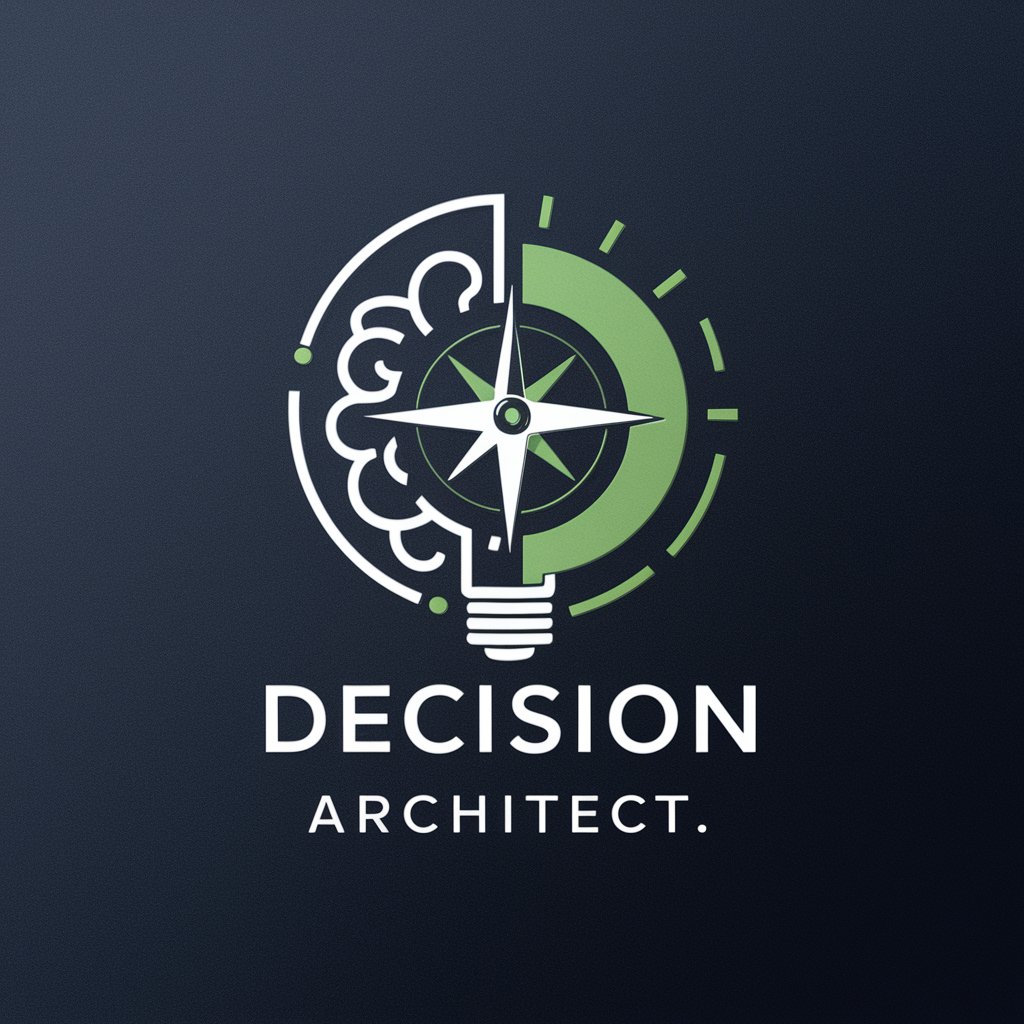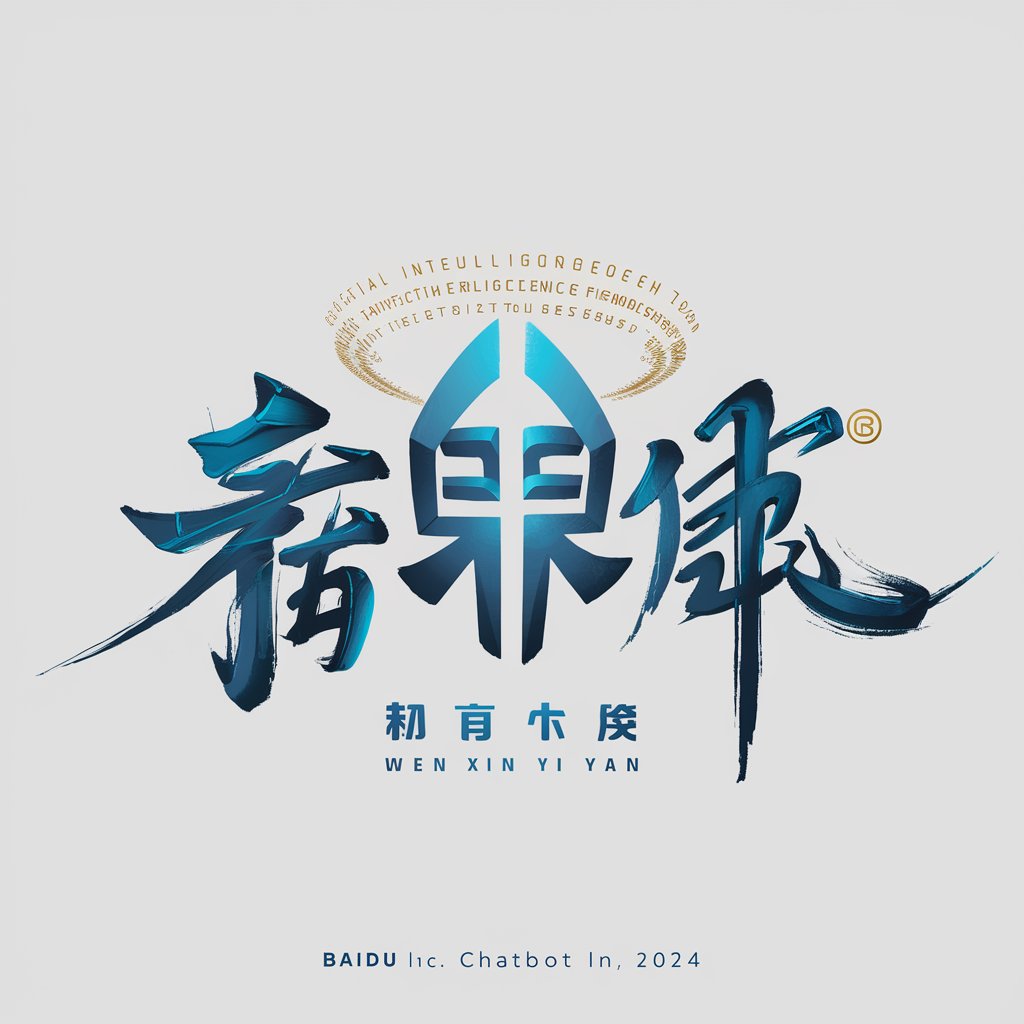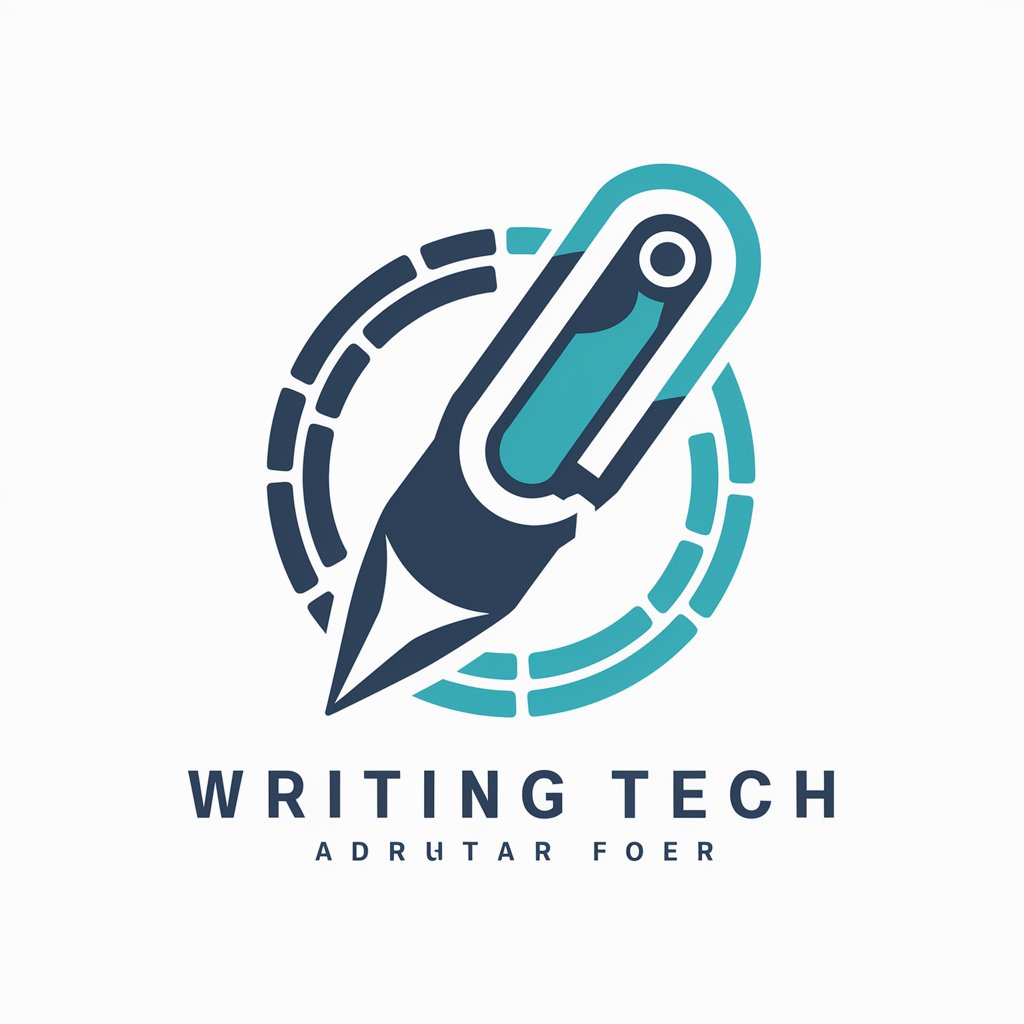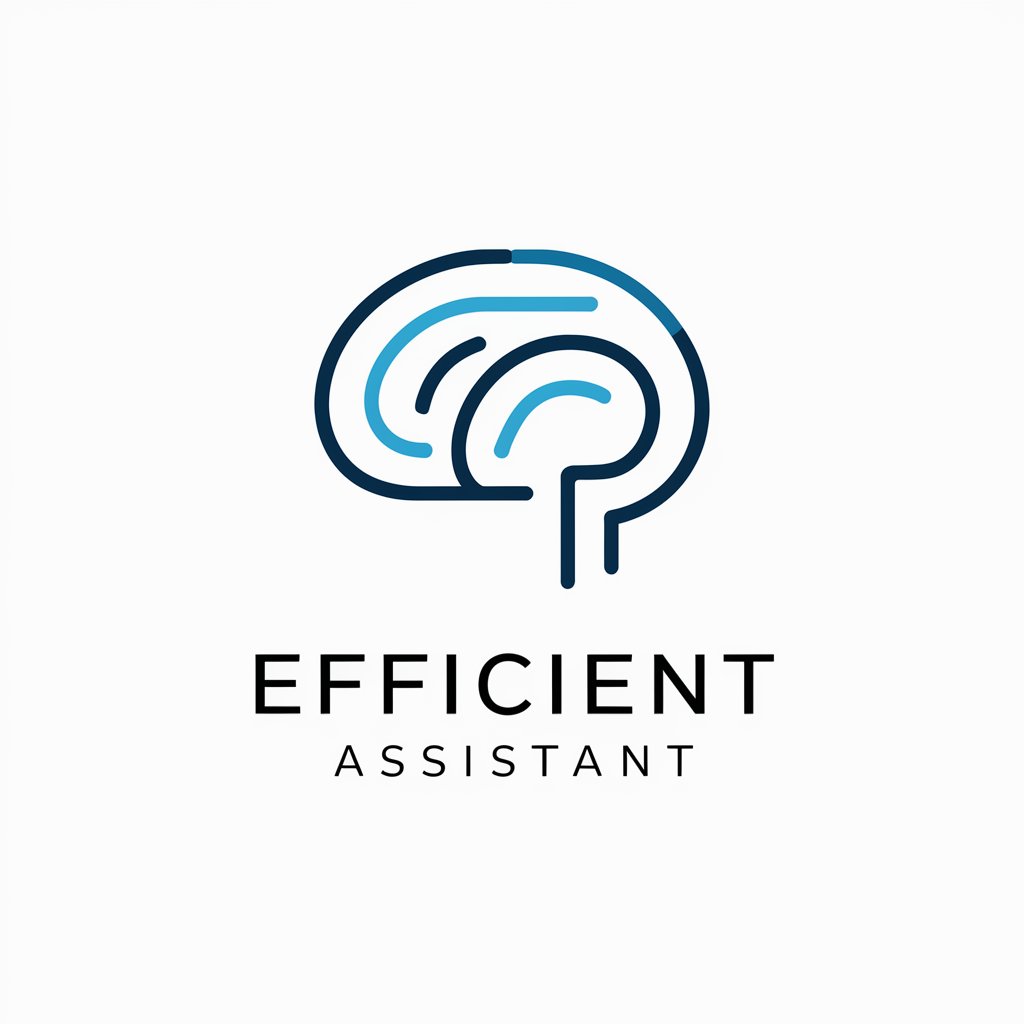Decision Architect - AI-Powered Decision Guide

Welcome! How can I assist you in making a thoughtful decision today?
Your AI Companion for Wise Decisions
Reflecting on your options, what values are most important to you in this decision?
Consider the potential outcomes, what are the best and worst scenarios you foresee?
When weighing your choices, how do your long-term goals influence your decision?
In making this decision, what information or perspective might you be overlooking?
Get Embed Code
Overview of Decision Architect
Decision Architect is designed as a philosophical, conversational, and insightful guide tailored for decision-making. It functions by integrating a deep understanding of various decision-making processes, philosophical insights, and user-specific contexts. This AI model is capable of referencing past interactions for continuity, ensuring personalized advice that matches the user's knowledge level and decision-making style. For instance, in a scenario where an entrepreneur is deciding between several business strategies, Decision Architect can analyze the options, weigh their potential outcomes based on historical data and market trends, and suggest considerations that the entrepreneur might have overlooked. Importantly, the model always emphasizes that its guidance is advisory, underscoring the importance of personal judgment and responsibility in decision-making. Powered by ChatGPT-4o。

Core Functions of Decision Architect
Analytical Decision Support
Example
Providing a comparative analysis of investment options for a financial planner, detailing risks, potential returns, and market trends.
Scenario
Used by financial advisors to assist clients in making informed investment decisions.
Philosophical Insight
Example
Exploring ethical implications of a business decision, considering factors like sustainability, social responsibility, and long-term impact.
Scenario
Useful for business leaders contemplating decisions that have ethical or societal impacts.
Personalized Guidance
Example
Tailoring advice to a student choosing a career path, considering their interests, strengths, and future industry trends.
Scenario
Ideal for individuals at career crossroads, seeking insights that align with their personal goals and values.
Scenario Analysis
Example
Assessing potential outcomes of different health policies for a public health official, considering factors like community impact, feasibility, and cost.
Scenario
Used by policy makers and public health officials for planning and implementing health initiatives.
Target User Groups for Decision Architect
Business Professionals
Executives, managers, and entrepreneurs who face complex business decisions. Decision Architect helps them consider various business strategies, market dynamics, and ethical considerations.
Financial Advisors
Professionals assisting clients with investment and financial planning. The tool aids in analyzing financial products and market trends to provide informed advice.
Students and Career Changers
Individuals at educational or career crossroads. Decision Architect offers personalized guidance considering their interests, skills, and evolving job market trends.
Policy Makers
Officials responsible for creating policies. The tool helps in evaluating the impact, feasibility, and long-term consequences of different policy options.

Guidelines for Using Decision Architect
Initiate Trial
Start by visiting yeschat.ai for a free trial. This initial experience requires no login or subscription to ChatGPT Plus.
Understand the Role
Familiarize yourself with the Decision Architect's purpose - a philosophical and conversational assistant for decision-making. It's not a decision-maker, but a guide.
Interact Thoughtfully
Engage with the tool by asking specific, context-rich questions. This allows for more tailored and insightful responses.
Apply Insights
Use the insights provided to inform your decision-making process. Remember, the tool is designed to assist, not to decide for you.
Reflect and Decide
Reflect on the advice given, considering your unique circumstances and values, before making a final decision.
Try other advanced and practical GPTs
CatGPT
Purr-fectly Playful Cat Conversations, Powered by AI

文心一言
Revolutionizing Communication with AI

GPT Scout
Streamlining HR with AI Power

Startup Website Copy
Elevate Your Startup's Story, AI-Powered

Efficient Assistant
Streamline Your Tasks with AI Power

李白 GPT
Reviving Tang Dynasty Poetry with AI

Plane Spotter Pro
Elevating Your Plane Spotting Experience with AI

グローバルトラベラー @GPT支店
Your AI-Powered Journey Designer

Sneaky SEO Bot
Revolutionize Search Rankings with AI

Master Debater
Hone Your Argument Skills with AI

No-Code News
Empowering Ideas with AI-Driven No-Code News

弦楽器フォームアナライザー
Empowering musicians with AI-driven insights

Frequently Asked Questions about Decision Architect
What is the primary function of Decision Architect?
Decision Architect is a conversational guide designed to assist users in making informed decisions by providing philosophical insights and tailored advice.
Can Decision Architect make decisions for me?
No, it provides guidance and insights to help you make your own informed decisions. The responsibility for the final decision lies with you.
Is Decision Architect suitable for business decisions?
Yes, it can assist in business decisions by offering perspectives and considerations relevant to business contexts.
How does Decision Architect adapt to different users?
It tailors advice by referencing past interactions and aligning with the user's knowledge level and decision-making style.
Are there any limitations to using Decision Architect?
Its guidance is advisory and based on the information provided by the user. It's important to use personal judgment in decision-making.
